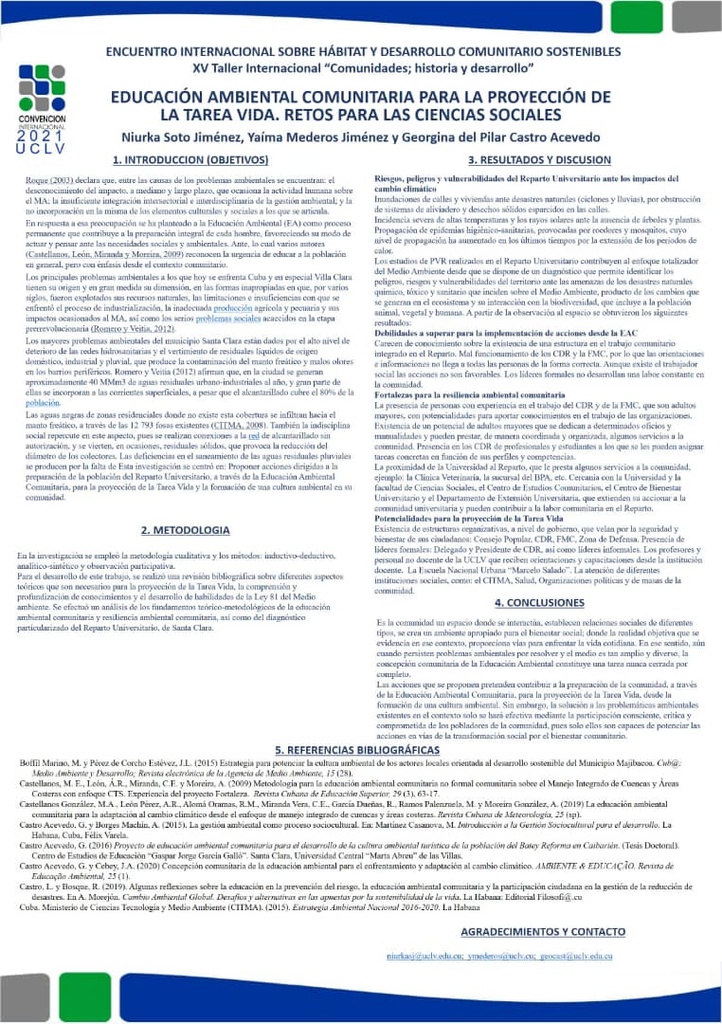Executive Secretary

Simposio Internacional "Hábitat y Desarrollo Comunitario Sostenible"
HAB-COM 2021

El apresurado cambio climático se reconoce como una de las preocupaciones más importantes de la humanidad. Su incremento en los últimos años y la intensificación de problemas ambientales, a todos los niveles, que afectan a la sociedad significativamente, evidencian la necesidad de la resiliencia comunitaria. A partir de ese interés, el objetivo de este artículo es proponer acciones dirigidas a la preparación de la población del Reparto Universitario, a través de la Educación Ambiental Comunitaria, para la proyección de la Tarea Vida y la formación de una cultura ambiental en su comunidad. Para el desarrollo de la investigación se empleó la metodología cualitativa y los métodos: inductivo-deductivo, analítico-sintético y observación participativa. La propuesta fue diseñada a partir del diagnóstico particularizado del Reparto Universitario; el análisis de sus problemas ambientales, riesgos, peligros y vulnerabilidades ante los impactos del cambio climático y sus fortalezas para la resiliencia ambiental comunitaria. Se reconoce que dichas acciones, por su carácter participativo, constituyen un valioso instrumento para promover la conservación ambiental, cultura ambiental y proyección de la Tarea Vida en la comunidad. Sin embargo, la solución a las problemáticas ambientales existentes en el contexto solo se hará efectiva mediante la participación consciente, crítica y comprometida de sus pobladores, pues solo ellos son capaces de potenciar las acciones para el bienestar comunitario.
Rapid climate change is recognized as one of humanity's most important concerns. Its increase in recent years and the intensification of environmental problems, at all levels, which significantly affect society, evidence the need for community resilience. Based on this interest, the objective of this article is to propose actions aimed at preparing the population of Reparto Universitario, through Community Environmental Education, for the projection of the Life Task and the formation of an environmental culture in their community. For the development of the research, the qualitative methodology and the following methods were used: inductive-deductive, analytical-synthetic and participative observation. The proposal was designed based on the particularized diagnosis of the Reparto Universitario; the analysis of its environmental problems, risks, hazards and vulnerabilities to the impacts of climate change and its strengths for community environmental resilience. It is recognized that these actions, due to their participatory nature, constitute a valuable instrument to promote environmental conservation, environmental culture and projection of the Tarea Vida in the community. However, the solution to the environmental problems existing in the context will only be effective through the conscious, critical and committed participation of its inhabitants, since only they are capable of promoting actions for the community's wellbeing.
Sobre el ponente

MsC. Niurka Soto Jiménez




